The Impact of OCD on Family Dynamics
Navigating the Complexities of Family Life with OCD

Understanding the Ripple Effect of Obsessive-Compulsive Disorder on Families
OCD does not exist in isolation; its effects ripple through family systems, impacting routines, relationships, and emotional health. This article explores the profound influence of OCD on family dynamics, emphasizing the importance of targeted interventions and supportive strategies to foster resilience and recovery.
The Clinical Burden of OCD on Families
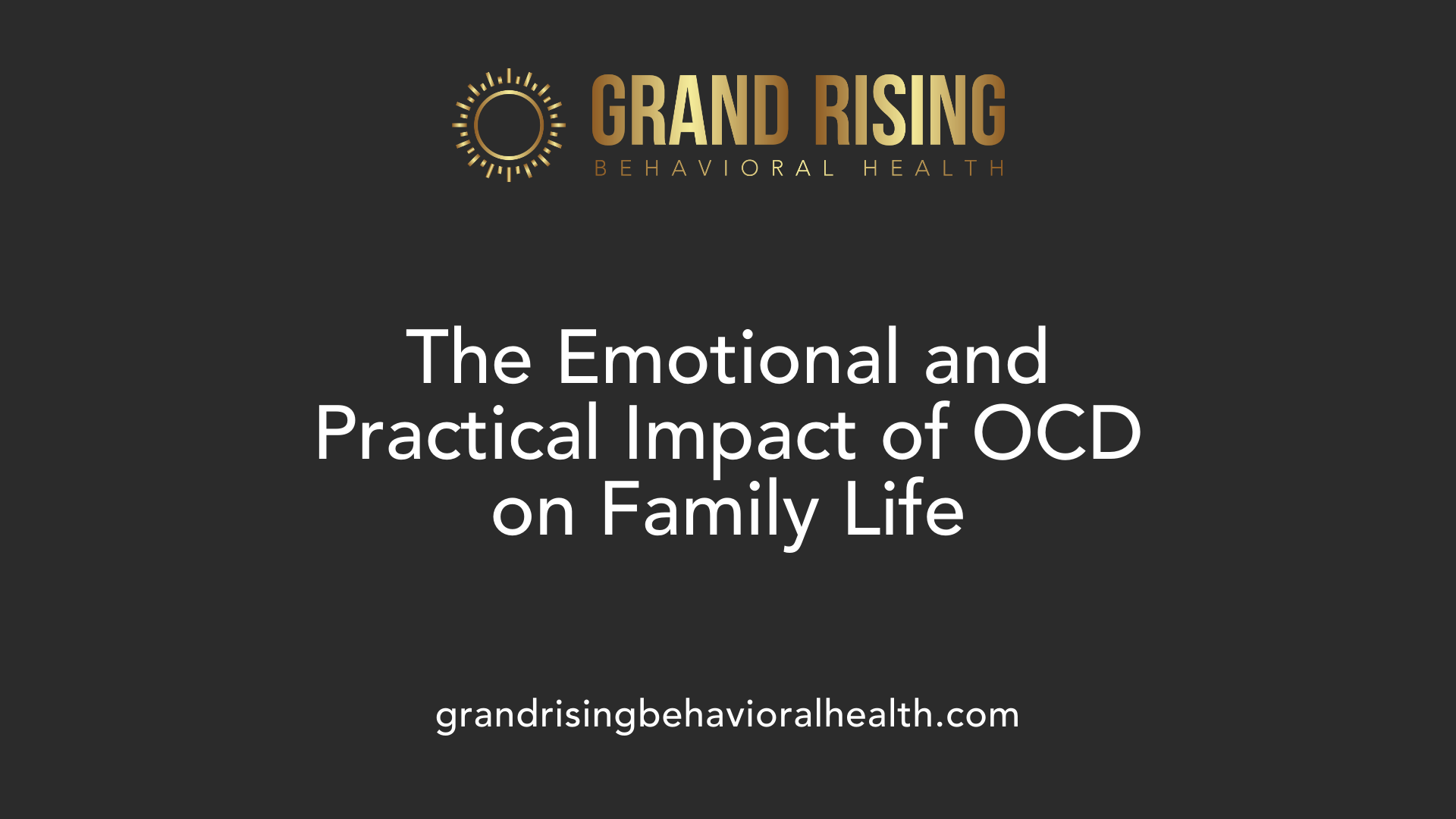
How does OCD affect family functioning and routines?
Obsessive-Compulsive Disorder (OCD) significantly disrupts the normal functioning and routines of families. Daily activities, including morning and bedtime routines, are often interrupted by the patient's compulsions and rituals. These behaviors can cause stress, tension, and emotional strain among family members.
Family members frequently experience feelings of anxiety, frustration, guilt, and helplessness. For example, they might participate in rituals or offer reassurance to prevent triggering compulsions, actions which can inadvertently reinforce OCD behaviors. This participation can lead to a decline in emotional intimacy, increased misunderstandings, and conflicts within the family.
However, implementing strategies such as reducing accommodation, maintaining regular routines, and supporting adherence to treatment can help stabilize family dynamics. Education about OCD, fostering open communication, and targeted family interventions are vital for creating a supportive environment conducive to recovery.
Overall, managing OCD in a family setting requires patience, awareness, and coordinated efforts to limit behaviors that reinforce the disorder while promoting resilience and understanding.
The Role of Family in Modulating OCD Symptomatology and Treatment Outcomes
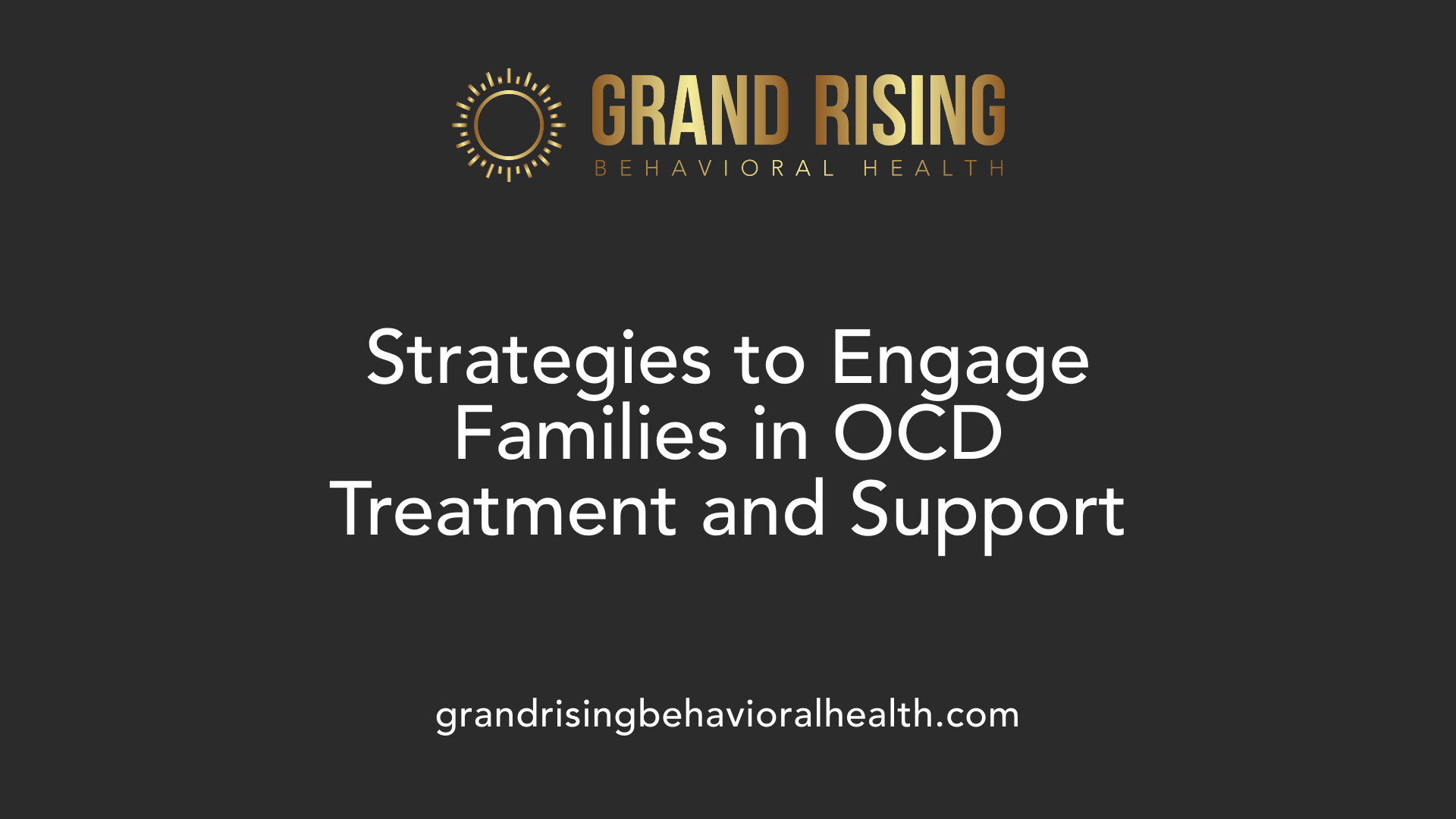
What role does family play in supporting OCD treatment and recovery?
Family members are essential in supporting the treatment and recovery of individuals with OCD. Their understanding of the disorder through psychoeducation equips them to respond in a way that encourages progress rather than inadvertently maintaining symptoms. By learning about OCD, caregivers can foster a supportive environment that reduces anxiety and promotes healthy routines.
Involving family members in therapy sessions, especially those focused on education and behavioral strategies, helps in aligning expectations and enhancing treatment adherence. Active participation in family-inclusive therapies allows relatives to practice supportive communication and set appropriate boundaries, which is vital for long-term management.
Addressing behaviors that maintain OCD, such as accommodating rituals or enabling avoidance, is critical. Families can work on reducing these behaviors over time, which can help diminish compulsive behaviors and improve the overall dynamics within the household. The involvement of family members in psychoeducational groups and accessing treatment resources empowers them to be effective allies in the recovery process.
Overall, family engagement—through education, behavioral support, and participation—substantially contributes to better treatment outcomes and promotes lasting recovery from OCD.
Are there effective family-based strategies to manage the impact of OCD on family life?
Absolutely. Several strategies have proven effective in helping families cope with OCD. Psychoeducation is the foundational step, increasing understanding of the disorder and its effects on every family member. Knowledge reduces frustration, improves empathy, and clarifies how OCD behaviors can be managed.
Family therapy, particularly approaches that target communication and reduce accommodating behaviors, can lead to significant improvements in family functioning. It teaches family members how to respond supportively without participating in or enabling compulsions. These sessions also help set clear boundaries to protect individual independence and reduce stress.
Structuring daily routines and establishing limits on compulsions help create predictable household environments. Open, honest communication fosters trust and ensures everyone understands each other's needs. Supporting treatment adherence by encouraging the individual with OCD to stick with therapy and medication while minimizing enabling behaviors enhances the effectiveness of the overall intervention.
These combined efforts—education, boundary setting, clear communication, and emotional support—can alleviate family distress, improve relationships, and create a nurturing environment conducive to recovery.
How does family accommodation influence OCD severity and treatment?
Family accommodation refers to behaviors where family members participate in or modify routines to reduce the patient's anxiety, such as helping with compulsions or avoiding triggering scenarios. While often motivated by compassion, these actions tend to reinforce OCD symptoms.
Research indicates that levels of family accommodation are positively correlated with OCD severity (correlation coefficient r = 0.42). Higher accommodation levels are associated with more intense symptoms and greater impairment.
Importantly, reducing accommodation through targeted interventions, like family-focused cognitive-behavioral therapy (CBT), can significantly improve treatment effectiveness. When families learn to resist participating in rituals or helping avoid anxiety-provoking situations, patients often experience a decrease in symptoms.
Interventions that directly address accommodation behaviors help lessen the familial burden and foster a healthier environment for recovery. These strategies are crucial complements to individual treatment, leading to better long-term outcome prospects.
OCD’s Impact on Family Roles, Routines, and Communication
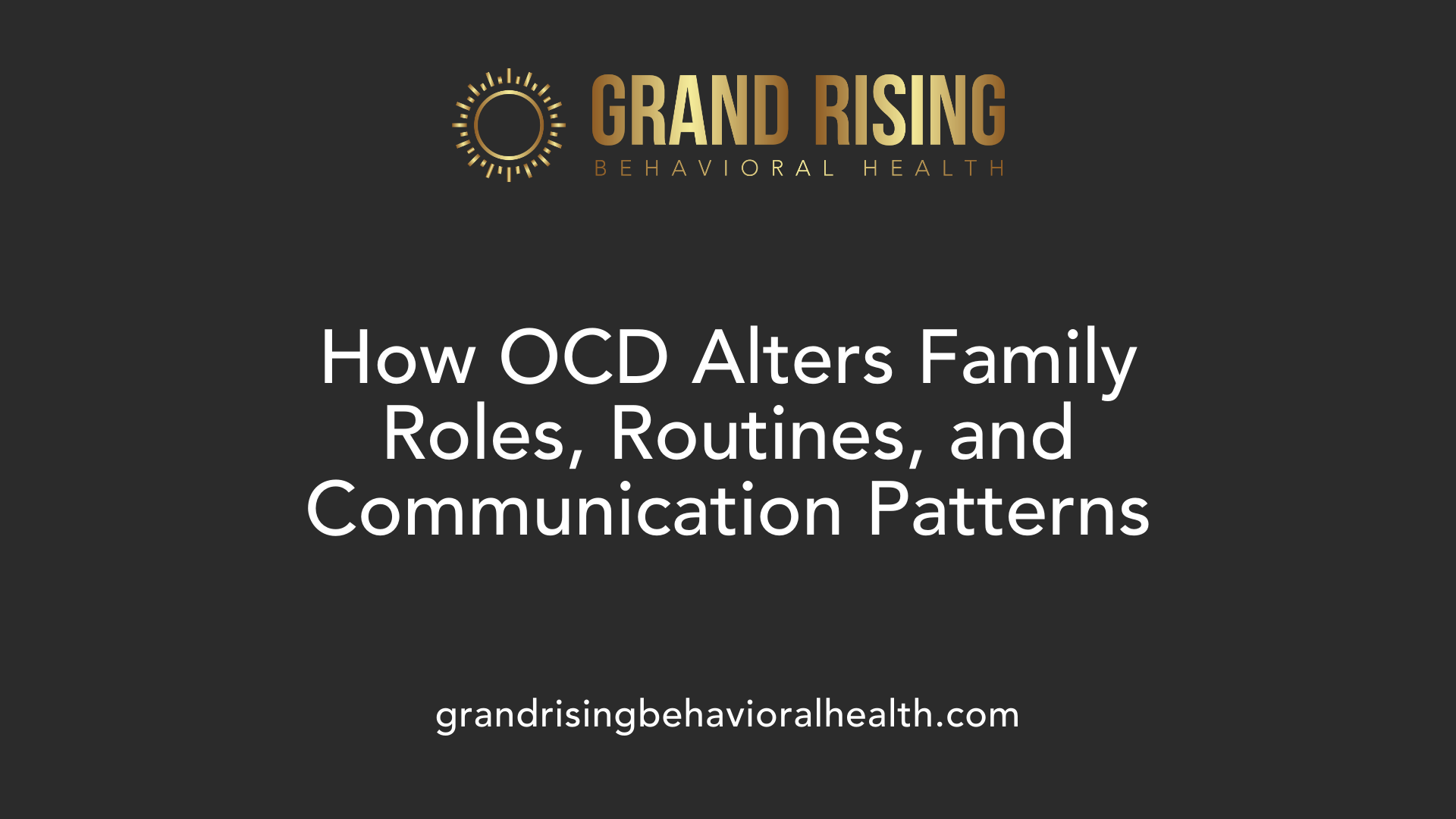
How does OCD affect family functioning and routines?
Obsessive-Compulsive Disorder (OCD) can significantly disrupt the daily life and emotional stability of families. The disorder often interferes with normal family routines, such as morning preparations, bedtime activities, and shared leisure times. These disruptions are usually caused by the need to accommodate the compulsions or rituals performed by the affected family member. For example, family members might modify routines to reduce distress or avoid triggering compulsions, which can inadvertently reinforce OCD behaviors.
The emotional toll on families is considerable. Family members often experience heightened stress, worry, frustration, and guilt. These feelings are exacerbated when they participate in or facilitate rituals, thinking it helps reduce conflict or distress, but in reality, it can strengthen the OCD cycle.
Miscommunications may arise as family members struggle to understand the disorder’s implications or become impatient with ongoing rituals. While strategies like reducing accommodation behaviors, keeping routines as normal as possible, and encouraging professional treatment can improve family dynamics, the overall burden remains substantial. Addressing these challenges requires psychoeducation, open communication, and practical interventions to foster a more supportive environment conducive to recovery.
What are the typical changes in family roles and communication patterns affected by OCD?
OCD often induces profound shifts in family roles and the way members interact. Certain family members, such as parents or spouses, may assume caregiver roles, frequently participating in rituals or offering reassurance to prevent distress, which inadvertently supports compulsive behaviors.
This dynamic can lead to codependency, where the family member's identity and responsibilities become centered around managing the OCD symptoms. Meanwhile, other members—such as children or siblings—may feel overwhelmed, neglected, or detached, sometimes withdrawing emotionally as a coping mechanism.
Communication tends to deteriorate under this strain. Families may experience frequent misunderstandings, with frustration replacing effective dialogue. Conversations about the disorder or related behaviors may be avoided or handled with irritation, leading to diminished trust and intimacy.
Addressing these patterns is crucial. Family therapy focusing on clarifying roles, establishing healthy boundaries, and promoting open communication can help restore a balanced and supportive family environment. This, in turn, can enhance the family’s resilience, improve cooperation, and facilitate the affected individual's treatment progress.
Factors Influencing Family Dysfunction in OCD
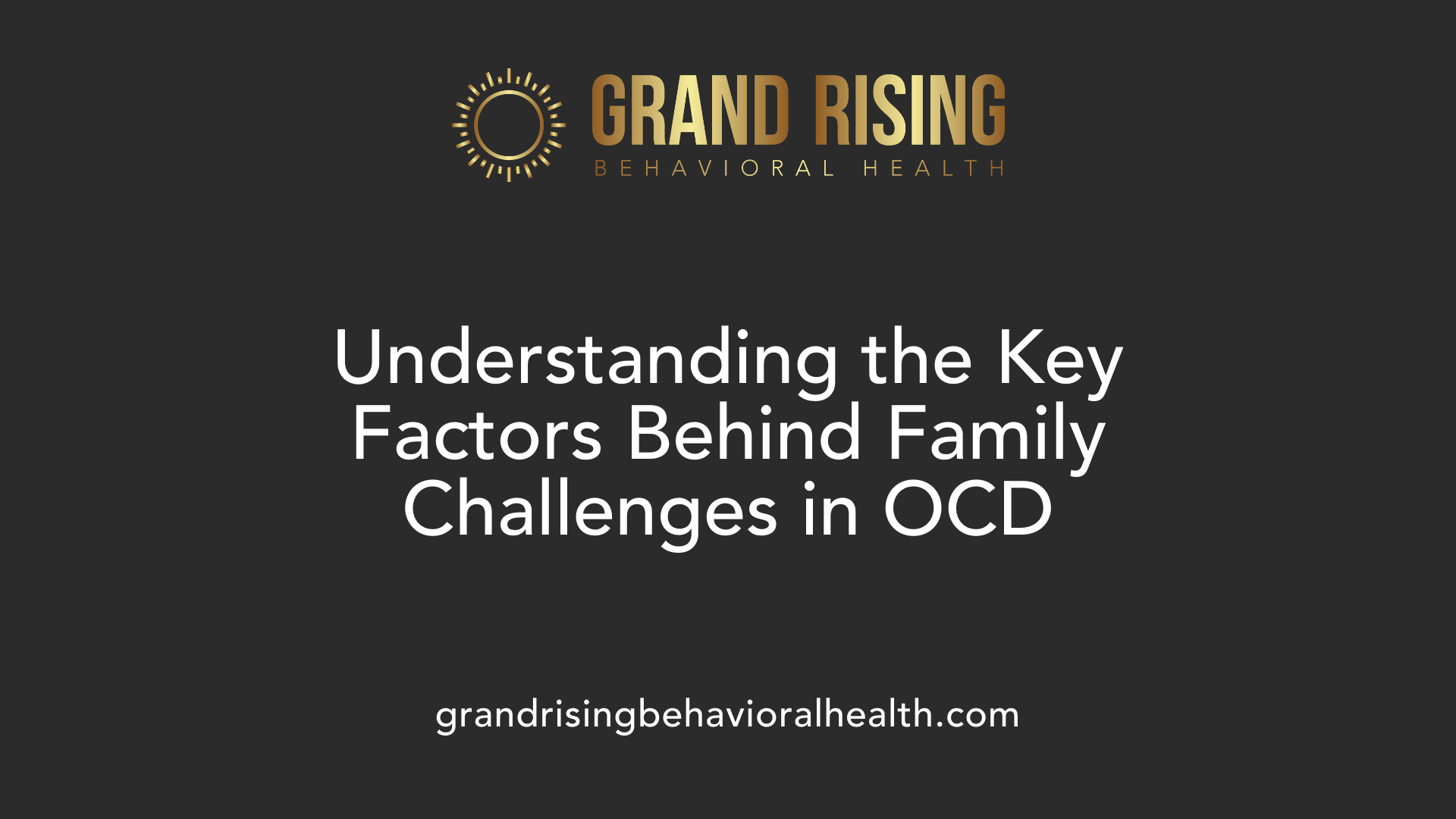
What are the main factors influencing family dysfunction in OCD?
Family dysfunction in OCD is shaped by numerous interconnected factors. The severity of the individual's OCD symptoms plays a significant role, with higher severity levels correlating with increased perceptions of family impairment. Studies have shown that families experiencing more intense symptoms often report greater difficulties in communication, support, and overall cohesion.
Parental perceptions also heavily influence family dynamics. When family members perceive blame or assign fault within the household, it often leads to heightened tension and less supportive interactions. This blame can stem from misunderstandings about OCD, feelings of frustration, or guilt related to caregiving burdens.
Family behaviors such as accommodation—where family members participate in compulsions or modify routines to prevent patient distress—are common in OCD and can unintentionally perpetuate the disorder. High levels of accommodation and antagonism (hostile responses to OCD behaviors) are positively linked with family dysfunction. These behaviors can hinder recovery and escalate conflict.
Further, the emotional fabric of the family, including cohesion and conflict levels, influences dysfunction. Low cohesion and high conflict often result from unmet expectations, frustration, and misunderstandings regarding the disorder. These issues contribute to an environment where supportive interactions are compromised, complicating treatment efforts.
Addressing family dysfunction involves psychoeducation about OCD, implementing family-based interventions, and managing symptoms effectively. By focusing on reducing accommodation behaviors, fostering better communication, and promoting understanding, families can develop a healthier environment that supports the individual's recovery.
How does OCD severity relate to family dynamics and perceptions of dysfunction?
There is a clear link between the severity of OCD and perceived family dysfunction. More severe symptoms are associated with heightened family stress, which manifests as increased tension, misunderstandings, and conflict.
Research indicates that families coping with severe OCD tend to experience disruptions across various domains, including communication, roles, and family cohesion. These disruptions reflect how the disorder impacts not just the individual but the entire family system.
Perceptions of blame and guilt by parents also intensify with greater symptom severity. Parents may feel responsible or helpless, which can contribute to negative feelings and maladaptive responses such as overaccommodating behaviors.
This relationship emphasizes the necessity for treatment strategies that address both OCD symptoms and family dynamics. Effective management can lead to reductions in family stress levels, improved communication, and overall better functioning, creating a supportive environment conducive to recovery.
| Factor | Impact | Additional Details |
|---|---|---|
| OCD Symptom Severity | Increased family dysfunction | Higher severity correlates with more conflict and support issues |
| Parental Perceptions | Heightened blame and guilt | Influences family interactions and support levels |
| Accommodation & Antagonism | Worsens family chaos | Enabling rituals or hostile responses perpetuate the cycle |
| Family Cohesion & Conflict | Affects emotional climate | Low cohesion and high conflict undermine support and recovery |
Understanding these factors can help clinicians and families develop tailored interventions aimed at improving family functioning, which is crucial for managing OCD effectively.
Special Considerations for Pediatric OCD and Family Impact
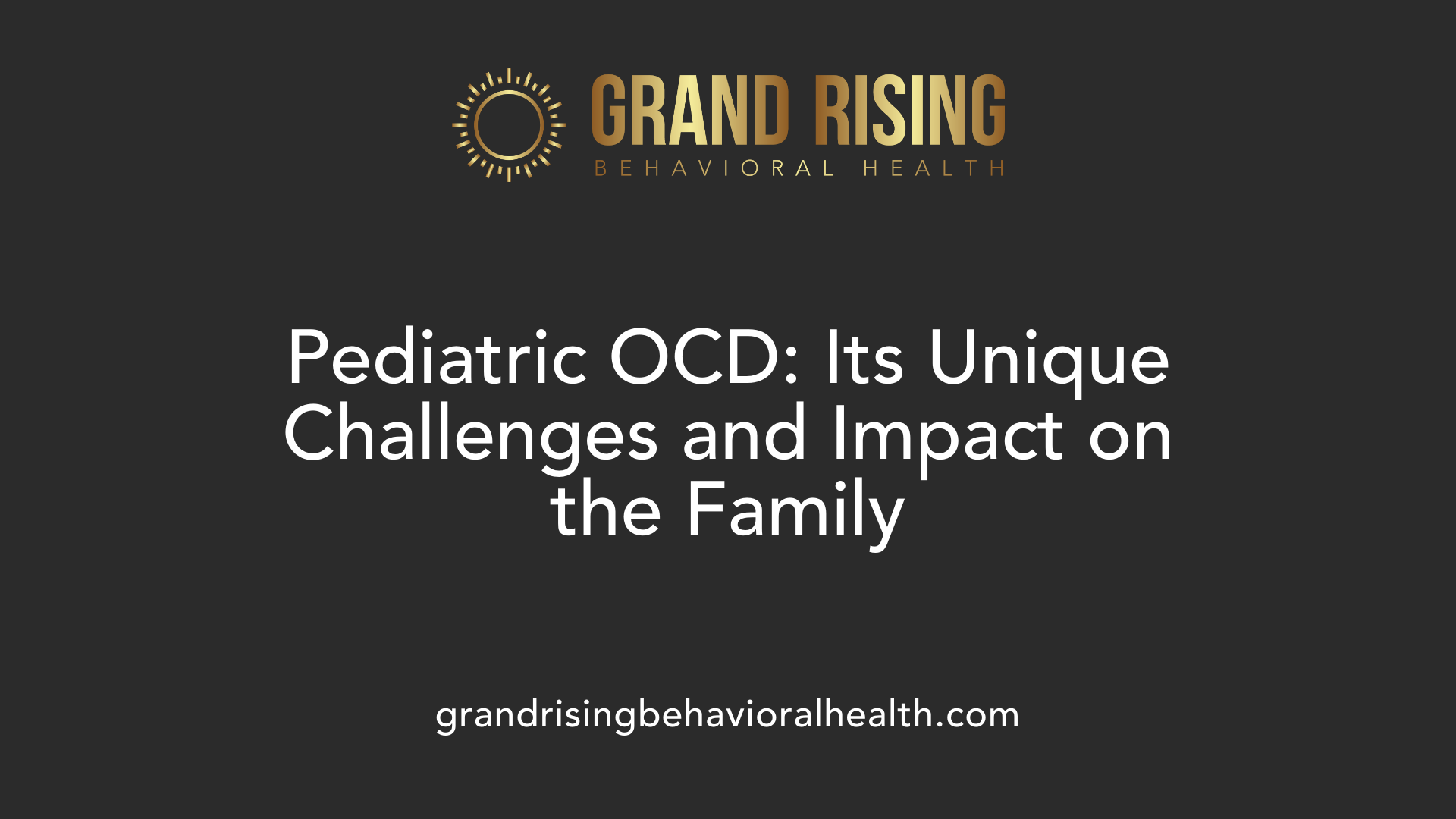
What are the effects of pediatric OCD on family functioning and emotional well-being?
Pediatric OCD has a profound impact on family functioning and the emotional health of all members. Parents often face high levels of stress and anxiety as they navigate managing their child's symptoms. Many experience feelings of frustration and guilt, especially when trying to support their child's recovery. Nearly half of mothers and a third of fathers report experiencing daily occupational impairment, illustrating how the disorder can interfere with parents’ work and daily responsibilities.
In addition to emotional strain, families often see disruptions in their daily routines—particularly morning and bedtime activities—due to OCD symptoms such as compulsions or rituals. These routine interruptions can cause significant household tension, making it harder to maintain normalcy.
The emotional toll extends to siblings, who might feel neglected, confused, or misunderstood. Siblings may perceive their brother or sister's condition differently than parents, sometimes feeling unfairly treated or confused about the behaviors. This variability underscores the importance of multi-informant assessments that gather perspectives from parents, children, and sometimes teachers or peers.
Altogether, pediatric OCD can strain family relationships, provoke household distress, and diminish overall family resilience. This highlights the necessity for family-centered interventions that address not only the child's symptoms but also the emotional well-being and functioning of the entire household.
Living with OCD in the Family: Emotional and Social Challenges
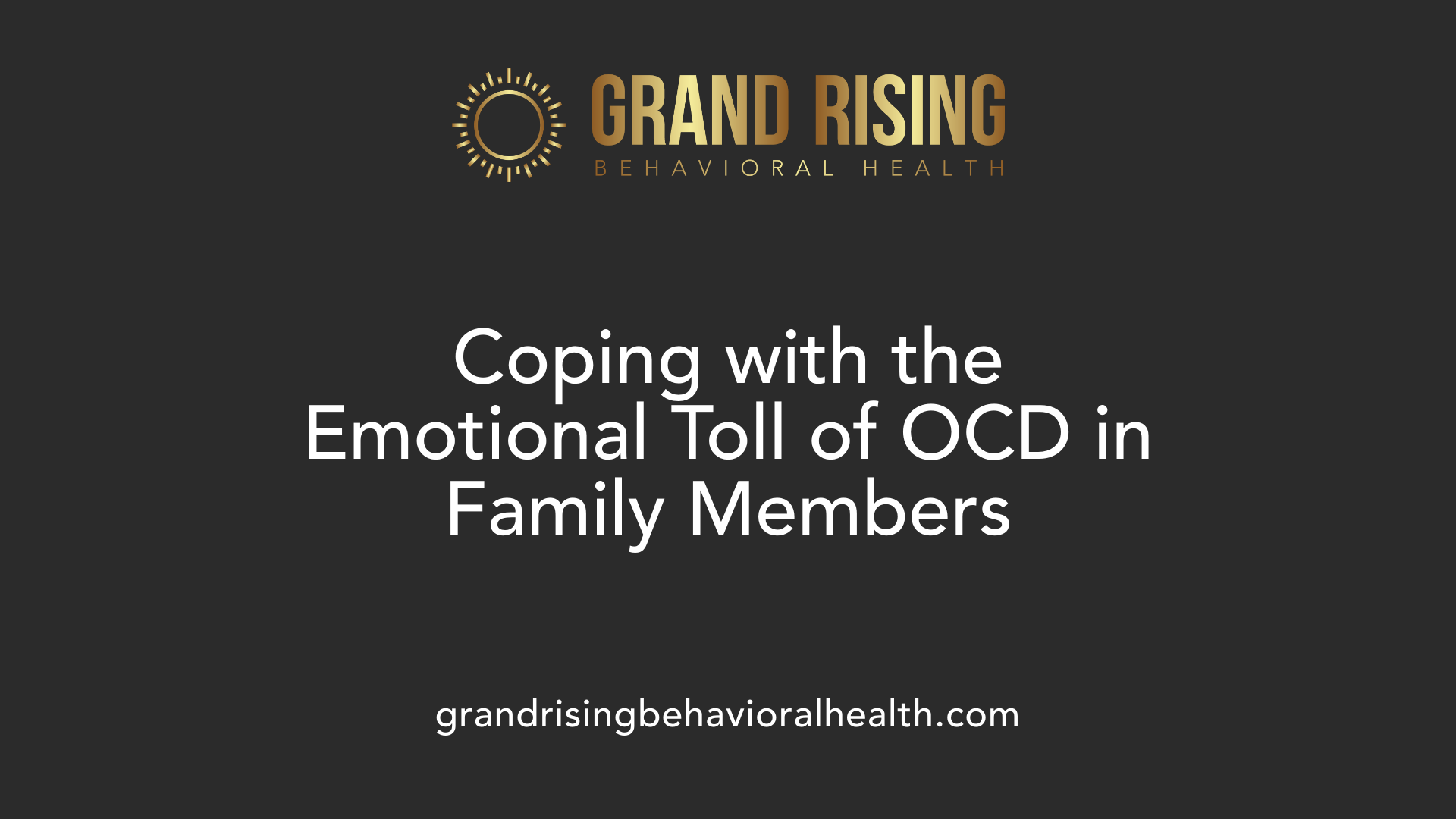
What is the emotional impact of OCD on family members?
Having a loved one with OCD often brings a wave of intense emotions for family members. They may experience feelings of embarrassment and shame, especially when OCD symptoms become visible in social settings, or when family rituals cause misunderstandings among friends and community members.
Guilt is also common, as family members might suspect they could be inadvertently contributing to or enabling compulsions. Frustration and exhaustion are prevalent as they continuously manage the unpredictability of OCD behaviors, which can be emotionally draining.
These feelings can lead to a state of emotional fatigue, affecting mental health and straining relationships within the family. Recognizing these emotional responses is crucial. Implementing coping strategies such as emotional regulation exercises, seeking support through peer groups, and engaging in family therapy can help families navigate these challenging feelings, creating a more supportive and understanding environment.
How can families manage the social and emotional challenges posed by OCD?
Effective management begins with open and honest communication within the family. Educating themselves about OCD helps family members distinguish between the disorder and deliberate behaviors, reducing misunderstandings and judgments.
Participation in support groups offers a platform to share experiences and learn coping strategies from others facing similar challenges. Establishing boundaries around accommodating compulsions prevents inadvertently reinforcing OCD behaviors, which can reduce the overall stress.
Supporting medication adherence and engaging in family-based therapies are vital. These approaches help foster patience and resilience. Celebrating small improvements can boost morale and motivate continued effort.
Creating a nurturing environment involves practicing patience and understanding, especially during setbacks. Emotional regulation techniques, like mindfulness and stress management exercises, can alleviate anxiety and frustration.
Therapeutic interventions, including family therapy, provide a safe space for discussing feelings, clarifying misconceptions, and developing practical skills to cope with OCD's impact. Such strategies promote emotional well-being, better interpersonal dynamics, and a more resilient family unit.
Fostering Resilience and Healing in Family Systems
The pervasive impact of OCD on family dynamics underscores the necessity of comprehensive, empathetic, and targeted interventions. Recognizing the signs of accommodation, reducing conflicts, and fostering open communication are vital steps toward alleviating family burden. Education and involvement in treatment empower families to support recovery while maintaining their own emotional health. With the right strategies, families can transform challenges into opportunities for strengthened bonds and shared resilience. Supporting families through psychoeducation, therapy, and community resources creates a foundation for healing, fostering a nurturing environment where every member can thrive despite the challenges posed by OCD.
References
- Relieving the Burden of Family Members of Patients with Obsessive ...
- Living With Someone Who Has OCD. Guidelines for Family Members
- Family accommodation in obsessive-compulsive disorder
- How OCD Affects Relationships - A Place of HOPE
- A Multi-Site Study of Family Functioning Impairment in Pediatric ...
- Help for Families Living with OCD
- Families and OCD - International OCD Foundation
- Exploring the impact of pediatric OCD on family impairment
- It's All in the Family: OCD and the Importance of Family Work During ...
More Resources
A team ready to start your journey.
Get in touch — today.
We are a safe space – a haven for exceptional individuals to receive discreet, personalized, in-person treatment and care.
.avif)










